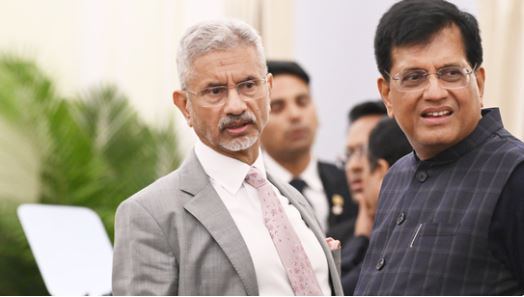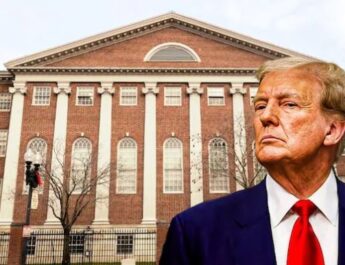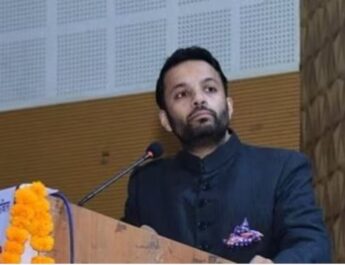New Delhi: Union Minister Piyush Goyal emphasized that India will not be coerced into any agreements or make decisions under duress, particularly when it concerns safeguarding the interests of its citizens. His statements followed the announcement by US President Donald Trump regarding a 90-day suspension of tariffs imposed on India. This development is perceived as a limited opportunity for both nations to finalize a bilateral trade agreement that is still under negotiation.
“We have previously stated multiple times that we do not engage in negotiations under threat,” Goyal remarked to reporters when questioned about the status of the India-US bilateral trade agreement (BTA).
“While time constraints can be beneficial as they prompt us to engage in discussions more rapidly, it is crucial that we do not rush until we can ensure the protection of our country’s and people’s interests,” he continued.
His comments come as India and the US enhance sector-specific discussions through virtual meetings, following the establishment of comprehensive terms of reference (ToRs) in New Delhi. These ToRs are designed to support a “mutually beneficial, multi-sector” bilateral trade agreement (BTA), aiming to eliminate tariff and non-tariff barriers, broaden market access, and strengthen supply chain resilience.
“We are making significant progress in the BTA negotiations and anticipate having the initial phase of the agreement ready before the fall of 2025,” stated a senior official involved in the talks. “It is likely that the two nations will first sign an early harvest deal addressing tariff and non-tariff issues.”
These negotiations are part of a larger strategic goal, jointly envisioned by Prime Minister Narendra Modi and US President Donald Trump, to increase bilateral trade from the current $200 billion to $500 billion by 2030—a target internally referred to as “Mission 500.”
Goyal recognized the significance of timelines in sustaining momentum during trade negotiations but warned against hastening any agreements. He stated, “While time constraints can motivate us to negotiate more efficiently, it is crucial to ensure the protection of our nation’s and citizens’ interests before rushing into decisions.”
The minister further emphasized that “all trade discussions in the country are advancing positively, guided by the principle of ‘India first’ and aimed at paving the way for Viksit Bharat 2047.”
The first round of in-person negotiations took place from March 26 to 29 in New Delhi, led by Assistant US Trade Representative Brendan Lynch and India’s Additional Secretary Rajesh Agrawal. Officials characterized the talks as “friendly and cordial,” with both parties demonstrating a mutual commitment to achieving a preliminary agreement by September.
Since that initial meeting, officials have conducted multiple video conferences to address sector-specific matters. Although the complete details of the Terms of Reference (ToRs) remain undisclosed due to a non-disclosure agreement, sources indicate that they offer a “broad scope” for establishing an ambitious framework.
On Friday, Foreign Affairs Minister S. Jaishankar, while refraining from providing specific details about the negotiations between India and the US regarding the proposed trade agreement, expressed New Delhi’s eagerness to finalize it as soon as possible.
“Within a month of the administration change, we conceptually agreed to pursue a bilateral trade agreement; we will find a solution that accommodates both our concerns. This is not an open-ended process,” the minister remarked.
In a notable development, Washington has postponed an additional 16% reciprocal tariff on Indian goods, which includes a 10% baseline tariff that was globally imposed starting April 2, until July 9, 2025, thereby creating an opportunity for both parties to finalize essential deliverables.




